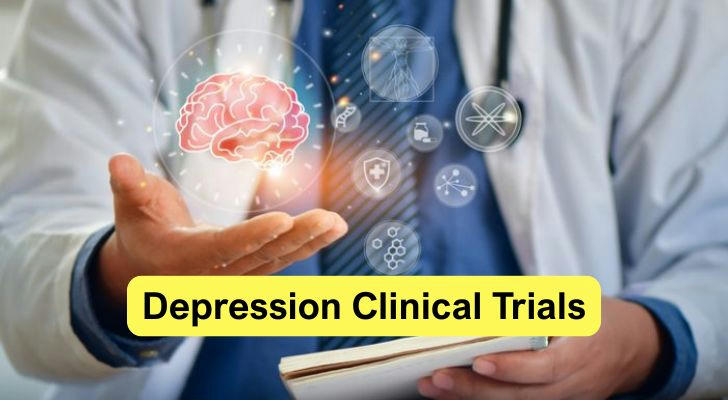A Guide To Find Paid Clinical Trials For Depression
Paid depression clinical trials present a unique chance for individuals to receive financial compensation while accessing innovative treatments. These trials support medical research and potentially alleviate persistent symptoms. With numerous opportunities across the United States, participants can benefit from novel therapeutic approaches, varied methodologies, and expert care within a confidential and secure environment.

Finding Paid Depression Clinical Trials
For individuals struggling with depression, participating in clinical trials can offer both financial compensation and access to innovative treatments. Clinical trials for depression provide a unique opportunity to contribute to medical research while potentially finding relief from persistent symptoms. Across the United States, numerous trials are actively recruiting participants, offering reimbursement for their time and involvement nationwide.
Current Opportunities and Innovations
Several trials focus on exploring novel therapeutic approaches, such as the neuropharmacologic effects of treatments like ketamine for major depressive disorder. These trials can provide substantial compensation and involve investigating rapid treatment efficacy and neurobiological markers for further understanding. For instance, a specific trial focuses on ketamine’s impact on individuals who have failed to find relief with traditional treatments, offering new insights into potential care options through research studies.
Diverse Methodologies in Trials
he diverse methodologies employed in these trials range from experimental medications to diagnostic imaging and cognitive evaluations. Participants in studies like brain imaging trials, which seek to match specific treatments to brain activity patterns, can gain access to investigational drugs and reimbursement for travel expenses, contributing to a broader understanding of depression’s mechanisms through participation. Notably, trials explore fast-acting nasal inhalants and other ground-breaking therapies that lead to potentially quicker and novel treatment results by incorporating innovative techniques.
Eligibility and Enrollment Considerations
Eligibility criteria can vary widely but usually include age restrictions, a diagnosis of major depressive disorder, or treatment-resistant depression. For example, the Moonlight-1 trial targets adults aged 18-64 who have not found success with current antidepressants, offering new medication options and reimbursing travel costs to facilitate study visits. Meanwhile, other studies, such as the Genomics of Electroconvulsive Therapy (GenECT) Study, focus on identifying genetic markers that influence severe depression, requiring participants with a history of specific treatments like ECT or rTMS for their input.
Benefits Beyond Compensation
Beyond financial gain, participating in these trials offers the chance to receive cutting-edge medical care typically unavailable through conventional means. Participants in these trials have access to leading mental health professionals, which ensures they receive up-to-date and effective mental health treatments alongside the latest insights. Moreover, participants often join a supportive community of peers and experts, which can provide invaluable assistance in managing depression symptoms and treatment challenges while building connections.
Confidentiality and Safety
Participation in clinical trials for depression is strictly confidential, with personal data being securely handled and accessible only to those conducting the research. This guarantees that participants’ involvement in a trial remains private, providing peace of mind as they engage in potentially beneficial studies while preserving personal information. Furthermore, these trials are conducted in regulated environments, offering a safe alternative to untested treatments in structured settings.
Why You Should Learn More About Paid Depression Clinical Trials Today
Engaging in paid depression clinical trials offers a dual benefit of personal gain and the advancement of depression treatment research. These trials provide financial compensation, allowing participants to relieve some of the economic strains associated with depression while also gaining access to cutting-edge treatments and expert care. This involvement supports the development of new therapies that could revolutionize the management of depressive symptoms globally contributing to impactful breakthroughs. Understanding the opportunities available and considering participation could be a significant step towards personal well-being and contributing to a broader cause.
